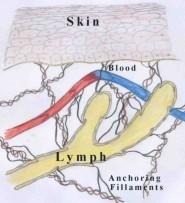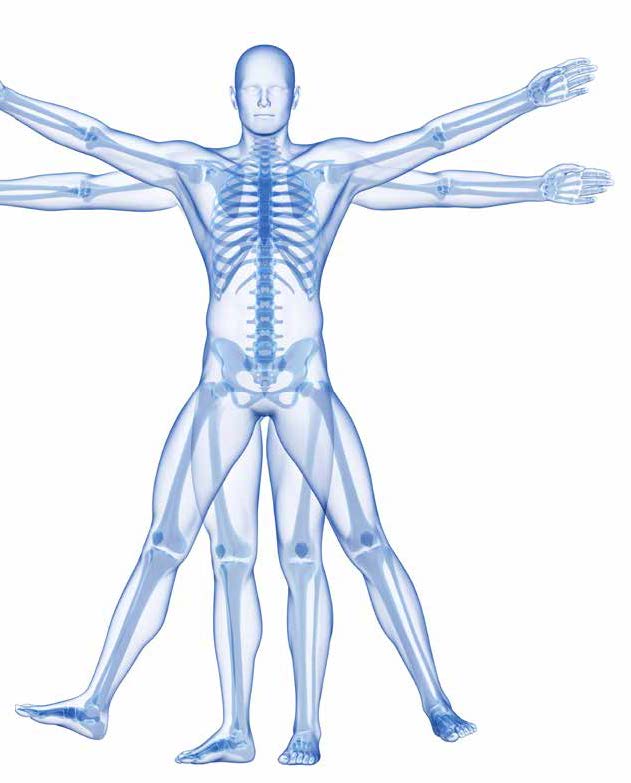LYMPHATIC SYSTEM
Introducing Your Lymphatic System
The lymphatic system plays a major role in the body’s defense mechanism. Its main function is concerned with metabolic processes, and the lymph system interacts with every area and, in fact, every organ in the human body.
Unlike most functions of the human body, relatively little is known about the lymphatic system. It is a circulatory system, and just as important as the cardiovascular system. The lymph system plays a major role in the body’s defense mechanism. It consists of transportation ducts, as well as a large variety of different cell structures (lymph nodes, spleen, thymus, tonsils).
This system is vital in the distribution of fluid and nutrients throughout the body. It also ensures drainage of excess fluids and proteins and acts as a “garbage processor” for cell debris, fats, foreign bodies, bacteria, and other metabolic waste. These toxic substances are carried away in a one-way system of transportation ducts, and reduced to manageable form for disposal.
The fluid which flows in this system is called lymph. It fills the intracellular spaces, and consists of fluid, electrolytes, proteins and certain fats from the blood.
Lymph capillaries are one-way, open-ended vessels which permeate the entire body. Their task is to collect excess fluid and transport it to larger vessels, which ultimately flow into the venous system.
What is the purpose of lymph nodes?
The pathway of lymph vessels is interrupted by more than 100 pea or bean-sized organs, the lymph nodes. They are the filtering stations, and collect micro-organisms and toxic substances from the lymph and destroy them. When you get an ear or throat infection, you may have swollen and painful lymph nodes. The swelling indicates that the lymph nodes are under great stress.
What does the Spleen do?
The Spleen is the largest lymphatic organ and has the same filtering function as the lymph nodes. In addition, it produces white blood cells called T-Lymphocytes, which are an important part of the immune system.
What happens when the lymph system gets overloaded?
If the lymphatic system becomes too stressed with excess fluids, they escape into the surrounding tissue, leading to swelling of the affected part of the body. This is what is known as lymphedema. Often, this happens as a result of surgery, radiation, injury, inflammation, burns, tumors or parasites. The skin in the affected area can swell up severely, and the tissue gets firm and painful.
How can lymphatic congestion be treated?
Lymphedema, and overburdened lymphatic systems require treatment by specially trained professionals.
In 1971, the Austrian doctor and researcher, Dr. Vodder, began training therapists, and showed how lymph can be manipulated in order to detoxify the body. This process has become vital to Europe’s medical establishment, and is now recognized by most European health insurances.
However, manual lymphatic drainage and detoxification is very slow, and has to be repeated many times in order to be effective.
Around the same time as manual lymphatic drainage became recognized in Europe, Dr. Marika von Viczay, frustrated with the slow progress, began to research photon and soft laser application in the USA. She developed a Photon based device which helps speed up the drainage process dramatically.
Lymphatics
Fluid that leaves the blood capillaries has to make it’s way into the lymphatic system for filtering. This could include bacteria, proteins, certain fats and waste. These are funneled to nodes for processing and routing. Your lymphatic system affects your entire well-being. Everything from allergies to heart disease included.
Lymphatic System carries your waste in a pale yellow watery fluid called lymph.
This System is made up of:
- Lymphocytes (white blood cells),
- Lymph capillaries, vessels and nodes.
- Thymus Gland,
- Spleen,
- Tonsils,
- Peyer`s Patches – (in the Ileum, stomach)


The crowning achievement of my career was to find a way to share the benefits of homeopathy and to channel it’s power toward the lymphatic system. Most people give less attention to their lymphatic system than they give to breakfast. Improve your lymphatic function, and improve your quality of life. (LymphaticFlush.com)
